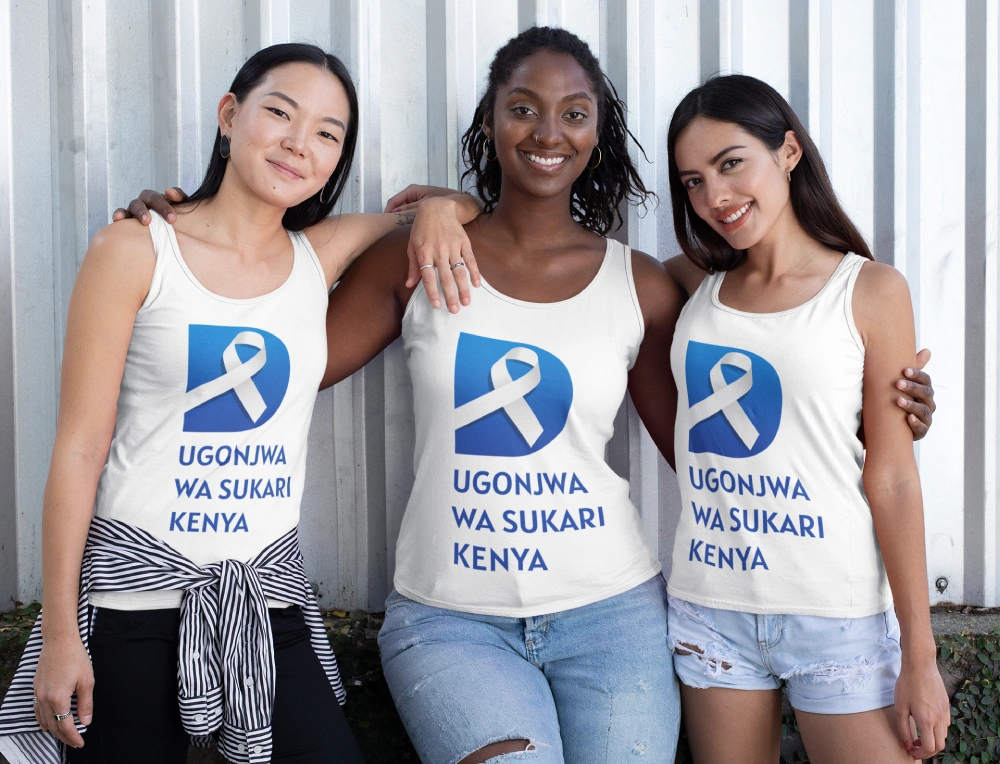Ethnicity and Type 2 Diabetes

Ethnicity and Type 2 Diabetes in Kenya
People from Black African, African Caribbean, South Asian, and Indian backgrounds are at a higher risk of developing type 2 diabetes. In Kenya, where a significant portion of the population belongs to these groups, it is essential to understand how your ethnicity can affect your health. Ethnicity and type 2 diabetes in Kenya are closely linked, and recognizing this connection can help you take steps to lower your risk.
Research shows that factors such as age, family history, and social or environmental influences contribute to this higher risk. While some of these factors are beyond your control, lifestyle changes can help prevent or delay the onset of type 2 diabetes.
Risk Factors of Type 2 Diabetes
When we talk about what increases the risk of developing type 2 diabetes, we refer to these as risk factors. Here are the key factors:

Age
The risk of type 2 diabetes increases as you get older, particularly after 40 for most ethnic groups, and after 25 for Black African, African Caribbean, Indian, and South Asian populations.

Weight (and waist size)
Carrying excess weight, especially around your waist, significantly raises your risk.

Ethnicity
People from Black African, African Caribbean, South Asian, and Indian backgrounds are at a higher risk of developing type 2 diabetes, often earlier in life.

Family History
If you have a close relative with type 2 diabetes, such as a parent or sibling, your risk is higher.
If you’re worried about your risk and want to take action, try our Know Your Risk tool. You’ll answer a few simple questions and find out what your risk of developing type 2 diabetes is. Depending on your score, the next step may involve asking your GP for a blood test.
Why Ethnicity Matters
Your ethnicity can influence the way your body stores fat, particularly around your abdomen. This visceral fat builds up around organs like the liver and pancreas and can lead to insulin resistance, which affects how well your body regulates blood sugar. Insulin resistance is a key factor in the development of type 2 diabetes.
In Kenya, people from Black African, South Asian (including Indian), and African Caribbean backgrounds may develop type 2 diabetes as early as age 25. This is much younger than other ethnic groups, where the risk generally increases after 40.
Understanding the relationship between ethnicity and type 2 diabetes in Kenya is essential for making informed health decisions. Fortunately, by adopting healthier habits, you can significantly reduce your risk.
How to Reduce Your Risk
While you cannot change your ethnicity or family history, you can take steps to reduce your risk of type 2 diabetes in Kenya:v

Move More
Regular physical activity helps manage your weight and improves your overall health. Aim for at least 30 minutes of moderate activity, such as walking or cycling, most days of the week.

Eat Healthier
Adjust your diet by incorporating more fruits, vegetables, and whole grains, and reducing processed and sugary foods. Traditional Indian and African foods can be enjoyed in healthier ways by focusing on balance and portion control.

Watch Your Waistline
Keeping your waist size in check is critical. For South Asian and Indian men in Kenya, aim for a waist size of less than 90 cm, and for women, less than 80 cm. Black African men should target less than 94 cm, and Black African women less than 80 cm.
By focusing on these lifestyle changes, you can lower your risk of developing type 2 diabetes, even if your ethnicity puts you at higher risk.
Support and Action
If you're concerned about your risk of diabetes, start by taking action today. Visit a healthcare provider for advice on managing your health and learn about local support programs. Recognizing the link between ethnicity and type 2 diabetes in Kenya, especially among Black African, Indian, and South Asian populations, is a critical first step toward safeguarding your health.